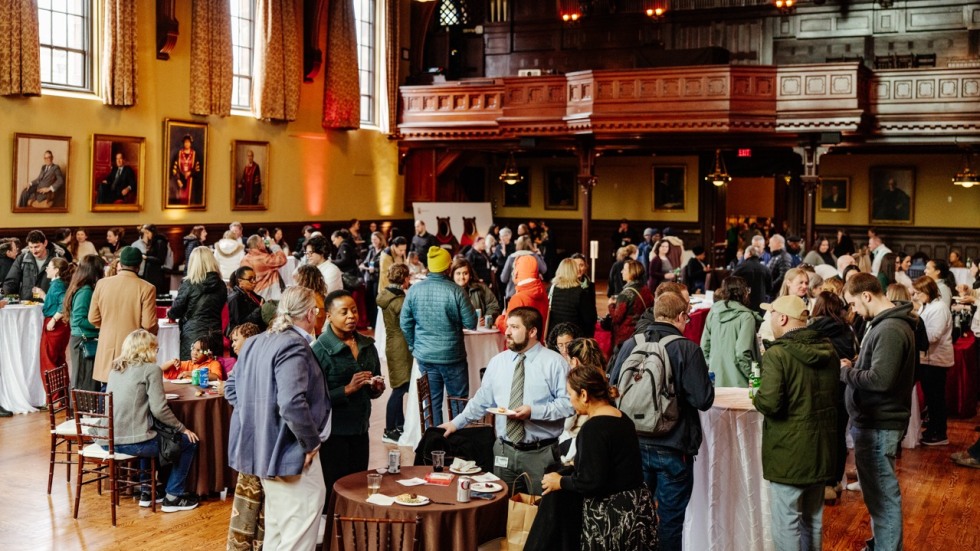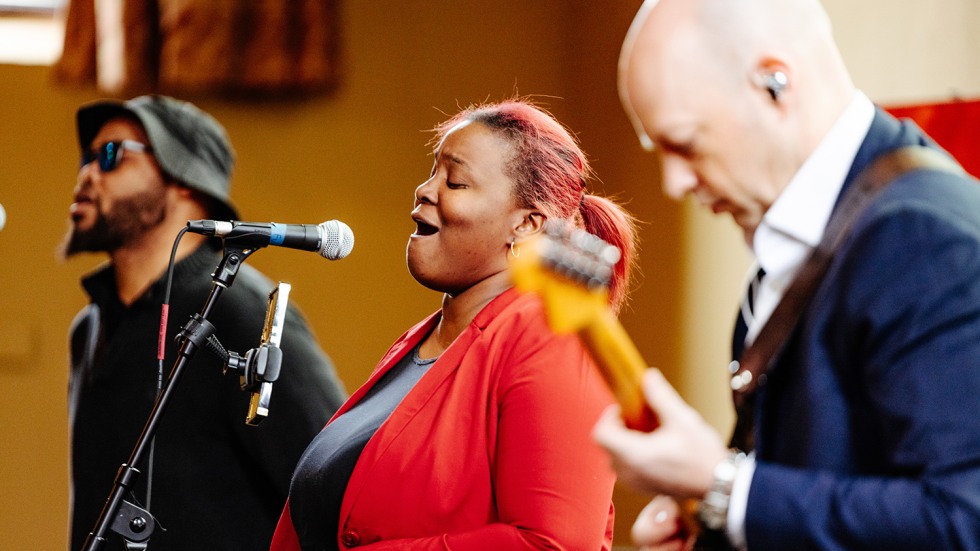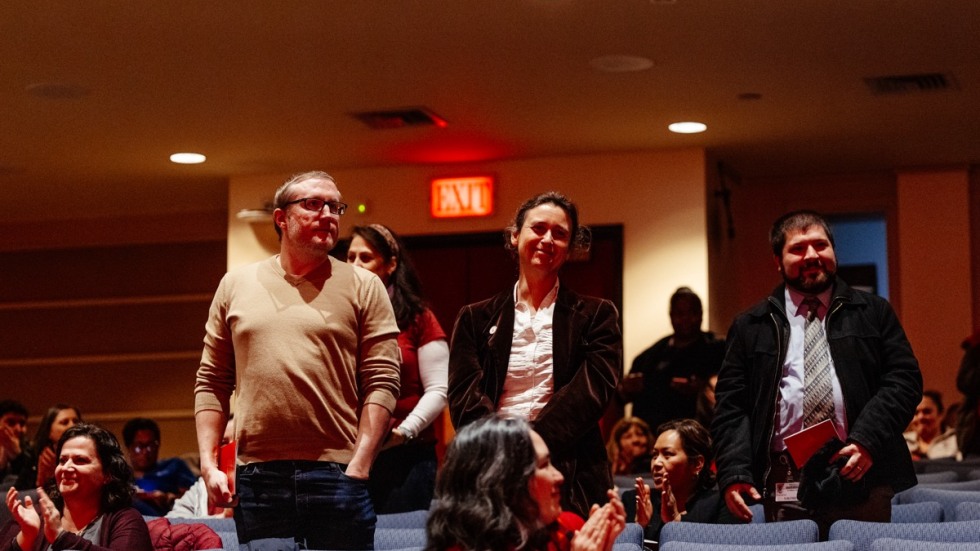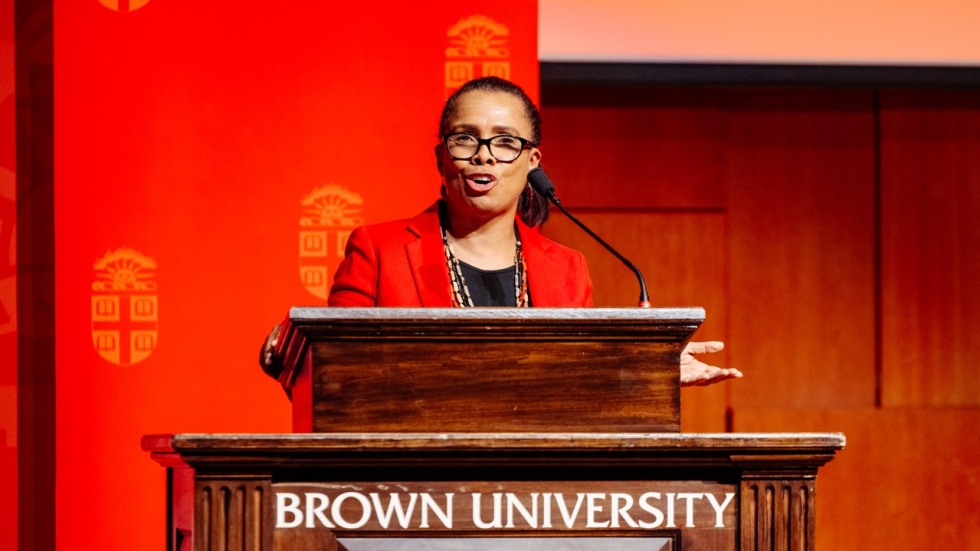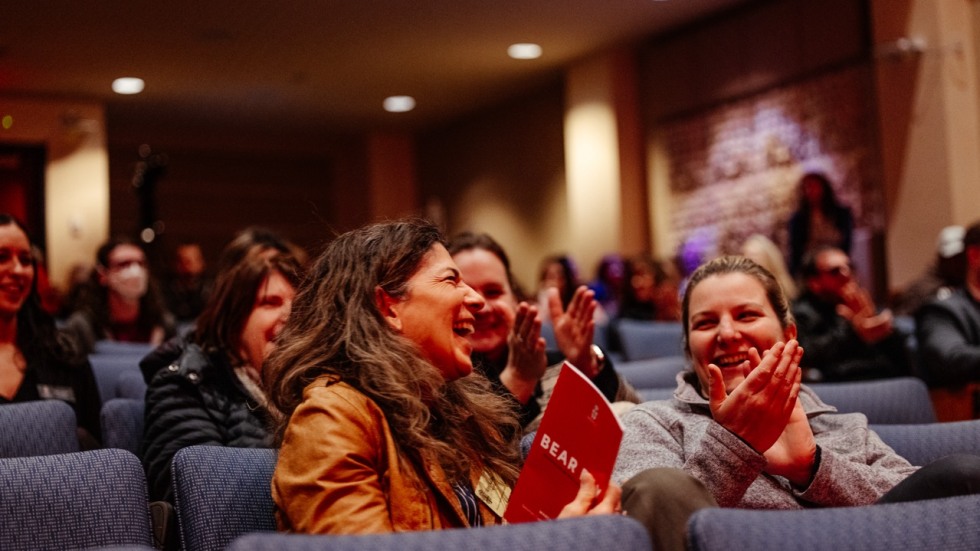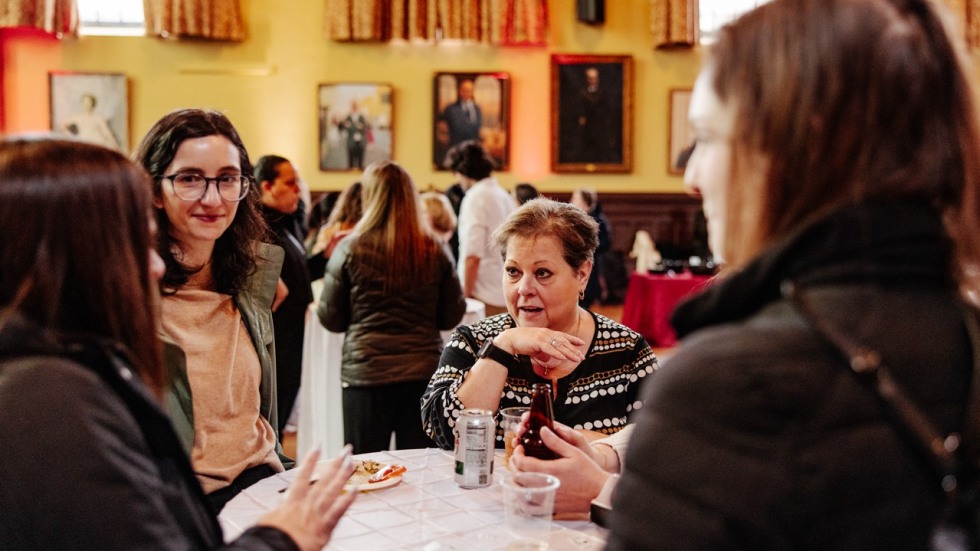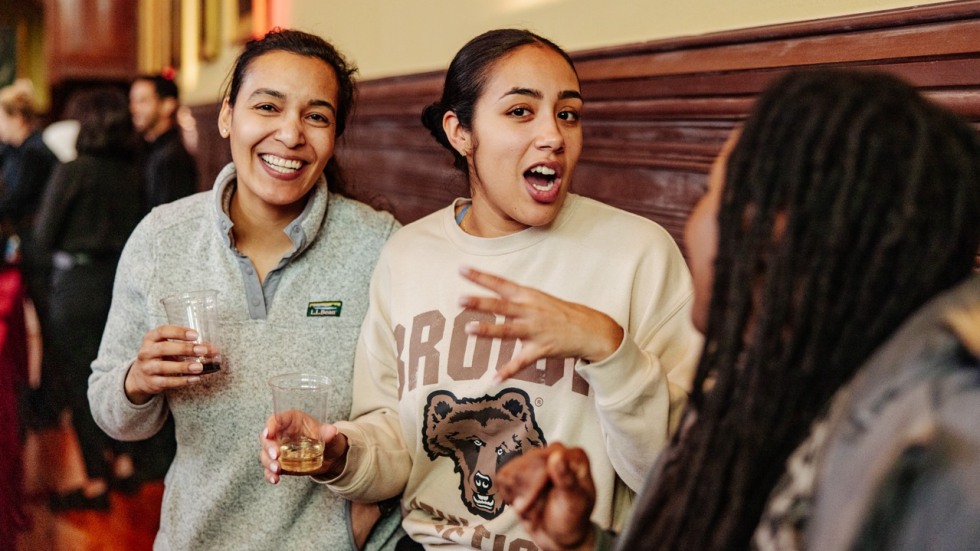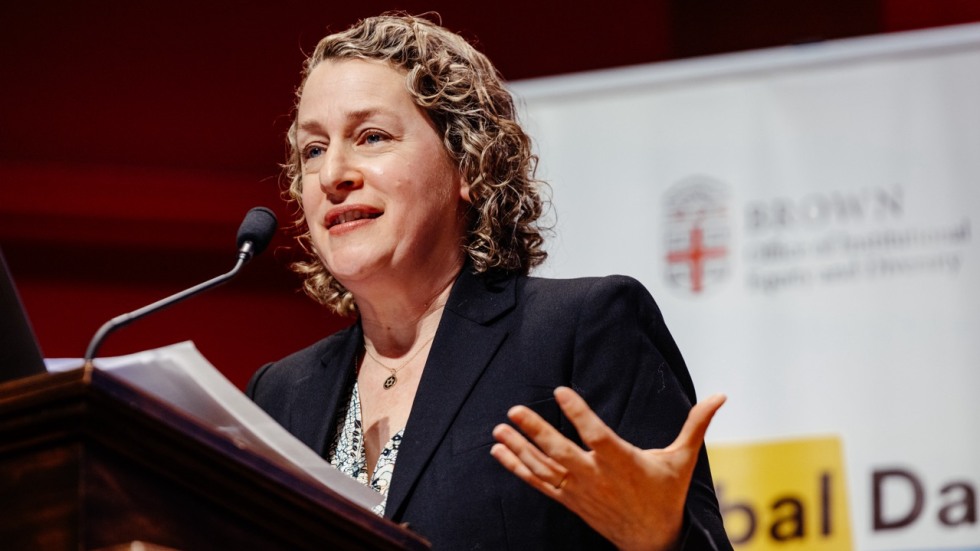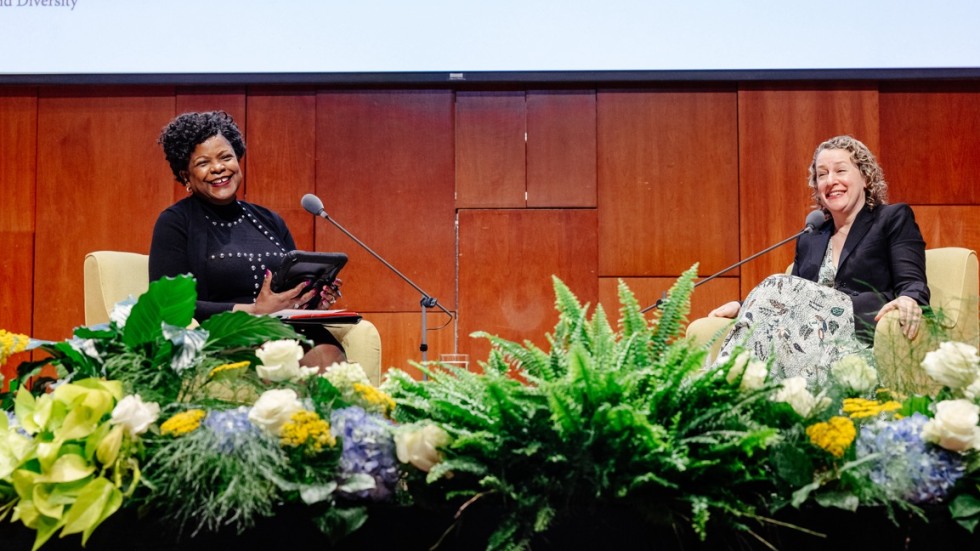PROVIDENCE, R.I. [Brown University] — One of the most rewarding elements of Joel Simundich’s role at Brown is his one-on-one work with students as they navigate their academic careers and shape their next steps.
Simundich, assistant dean of the College for fellowships, had the opportunity to reflect on that work on the occasion of Brown’s annual BEAR Day, which celebrates the dedication and contributions of staff members across campus. He was among seven individuals and nine teams recognized for their leadership, service, innovation and more during an employee appreciation awards ceremony at the Salomon Center for Teaching.
The BEAR Day festivities capped off a day filled with workshops and presentations that were part of Brown’s Global Day of Inclusion — marking a robust series of events on College Hill on Tuesday, March 26, that championed and supported employees, organized by University Human Resources and the Office of Institutional Equity and Diversity.
A community care theme resonated clearly during both the workshops and at the afternoon awards ceremony, where dozens of staff members were recognized with Excellence Awards. The recipients represented a wide and varied spectrum of schools, departments, centers and offices at Brown.
“Each and every one of you really is a vital part of our community and, for sure, its unwavering success,” Vice President for Human Resources Marie Williams told staff at the BEAR Day event. “But what is even more impressive is how the excellence of Brown University staff continues despite the many hardships that have arisen in our world [and] on our campus throughout the year and past several months. It really truly is a testament to our resiliency and ability to adapt and grow.”
Global Day of Inclusion promotes well-being
All of the day’s events were rooted in the theme of “self-care is community care.” Before the BEAR Day ceremony, Brown’s third Global Day of Inclusion offered workshops focused on topics ranging from developing mindfulness strategies to building lifestyle changes that support self-care.
The events commenced with a morning keynote address from Sara Coodin, director of academic affairs for the American Jewish Committee, a non-partisan organization and one of the oldest Jewish advocacy groups in the United States, she said.
Speaking to an audience of hundreds gathered in the Salomon Center’s De Ciccio Auditorium and virtually on Zoom, Coodin discussed violence in the Middle East and spoke about the rise in reports of discrimination, harassment and unrest. In a moment when “temperatures are really high,” Coodin said, it’s critical for academic communities to enable opportunities for people with multiple points of view, identities and perspectives to engage in dialogue that may pave the way for solutions.
